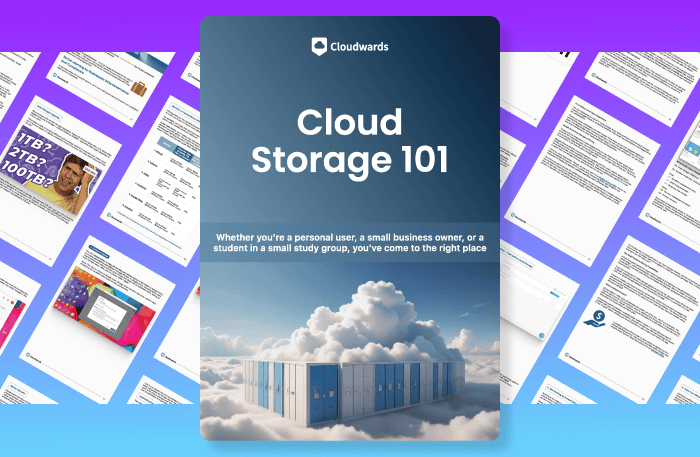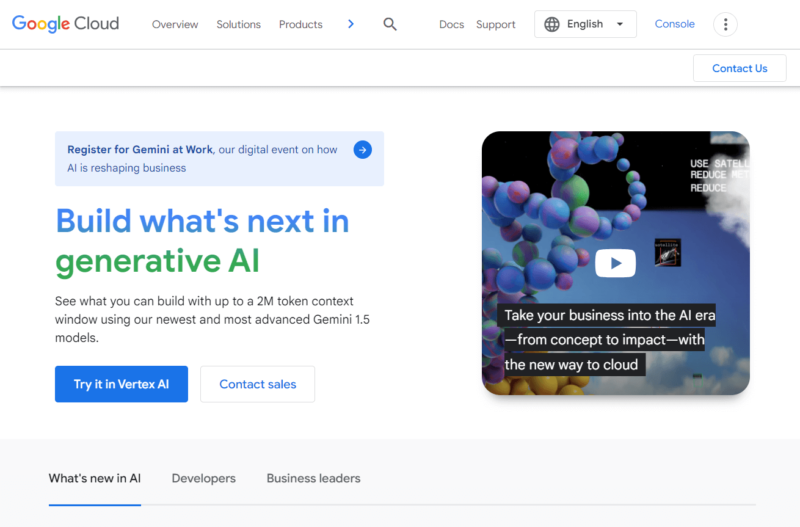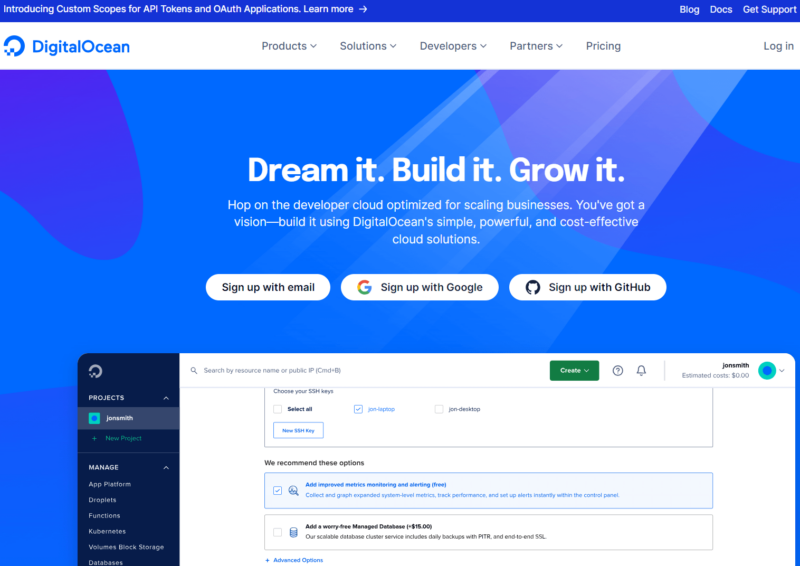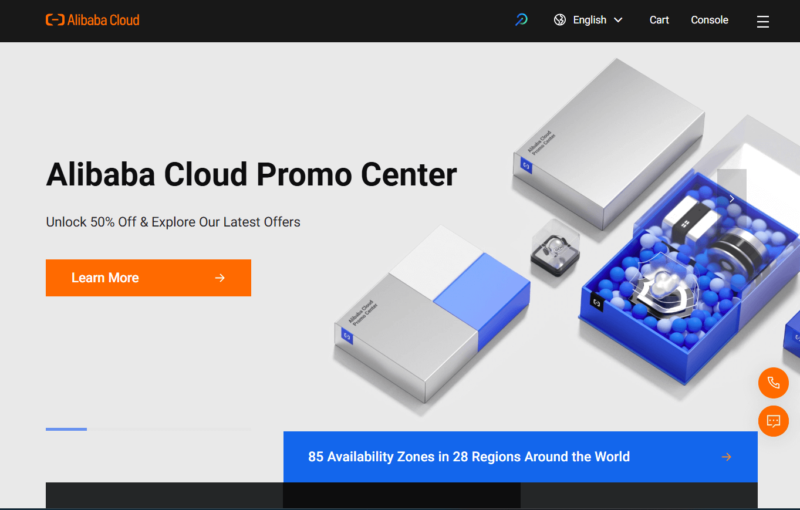With a combined market share of over 50%, Amazon Web Services (AWS) and Microsoft Azure are the top two cloud computing providers in the world. Their large market share is an indicator of their wide acceptance. Though both are widely accepted, comparing Azure vs AWS will help you determine which one is the right platform for your needs.
In our comparison, we measure up their key features, differences and similarities. As we compare AWS vs Microsoft Azure, we will also highlight the career prospects each one offers and the advantages for your cloud computing needs.
Which Is Better: Microsoft Azure vs AWS?
If your existing infrastructure uses a lot of Microsoft products, such as Microsoft Office 365 and Windows Server, then Microsoft Azure is better for you. Integrating Microsoft Azure with other Microsoft products is seamless. In other words, you have less complexity to deal with.
Microsoft Azure also has a reputation for being a high flier in hybrid cloud environments. If you’re thinking of deploying a hybrid cloud, Microsoft Azure is the best choice.

- Demystify cloud storage terminology and key concepts in plain language
- Discover easy-to-implement techniques to securely backup and sync your data across devices
- Learn money-saving strategies to optimize your cloud storage costs and usage
If you intend to expand your business or organization into various industries, AWS might be better, as it offers a wider range of services than Azure. That aside, AWS has a mature developer community, so you can readily find expertise to help maintain your cloud environment if necessary.
Ultimately, the choice between Microsoft Azure and AWS depends on the details of your project. In fact, if your project calls for it, you could run a multicloud deployment using both AWS and Microsoft Azure.
Who Is Microsoft Azure For?
- IT professionals: Azure offers a wide range of services for developers to build, test, deploy and maintain software. It also offers services for DevOps, data analysis and system administration.
- Organizations with a strong Microsoft ecosystem: Any organization with an existing Microsoft infrastructure will enjoy seamless integration with Microsoft Azure. These organizations may also get discounts on licenses, among other incentives.
- Businesses: Microsoft Azure offers services and price plans suitable for all business sizes, from startups to enterprises.
Who Is AWS For?
- Developers: Whether you’re a software developer, cloud engineer, DevOps engineer or data engineer, AWS has services you can use for your work.
- Students: AWS offers a free tier of various services for learners looking to become proficient in the platform, easing the financial burden of entry into the cloud.
- Businesses: Just like Microsoft Azure, AWS has various pricing plans and services that businesses of all sizes find suitable for their operations.
Learning AWS vs Azure: Which Is Better for Career Opportunities?
The better option between AWS and Azure in terms of career opportunities depends on various factors, including your career goals, location, target industry and technical background.
Generally, AWS has the larger market share, so you can expect more job opportunities requiring AWS expertise. However, you can also expect more competition. That said, Azure is not far off. In certain locations, like Norway, Switzerland, the U.S. and the U.K., Microsoft Azure career opportunities are very common.
If you are looking to work for a Fortune 500 company, Azure might be better, as most of these companies use Microsoft Azure. In addition, if you are very familiar with other Microsoft products, you’ll have an edge when integrating Azure with those products.
Ultimately, learning both AWS and Azure gives you more options. Since they are similar in many ways, learning both isn’t out of the question.
Our Detailed Comparison Methodology
In comparing AWS vs Azure, we evaluated their catalog volume (number of services), market share, some of their best use cases, support options and responsiveness, ease of integration and user community.
We also highlighted the similarities in their core services, pricing models, global infrastructure and reach, general security and compliance, and access options.
AWS vs Azure: Comparison at a Glance
| Market share: | Azure | AWS |
|---|---|---|
| 20% | 31% |
| Pricing models: | Azure | AWS |
|---|---|---|
| Pay-as-you-go | ||
| Reservations | ||
| Savings Plans | ||
| Dev/Test pricing | ||
| Licensing discounts | ||
| Spot Instances |
| Core services: | Azure | AWS |
|---|---|---|
| Virtual machines | ||
| Object storage | ||
| Block storage | ||
| File storage | ||
| Networking | ||
| Databases |
| Global reach: | Azure | AWS |
|---|---|---|
| Continents | 6 out of 7 continents | 6 out of 7 continents |
| Regions | ||
| Availability zones | ||
| Hybrid cloud | ||
| Security & compliance |
| Accessibility: | Azure | AWS |
|---|---|---|
| Management console | ||
| CLI | ||
| REST API | ||
| SDK7 | ||
| Scalability & reliability | ||
| Documentation |
| Support | Azure | AWS |
|---|---|---|
| Support plans | 4 | 5 |
| Responsiveness | Typically faster | Response times close to Azure’s |
| Number of services | More than 200 | More than 200 |
Microsoft Azure Key Features:
- Support: Azure offers multiple support plans with clear pricing, and its support is quite responsive.
- Hybrid cloud: Azure’s design has a strong focus on easy integration with hybrid cloud, making it a major player in hybrid deployments.
- Microsoft integration: Microsoft Azure readily fits into other Microsoft environments, making its integration with existing Microsoft products seamless.
- Scalability: Microsoft Azure is a hyperscaler cloud; it is built on a massive scale of data centers, so it can scale up to support large enterprise workloads and scale down as needed.
- Reliability: Workloads and data in Microsoft Azure are typically replicated across data centers, preventing permanent losses and long-term outages.
- User-friendliness: Microsoft Azure offers an easy-to-use interface, especially in regard to its documentation.
- Security: Besides offering a vast range of tools, Microsoft Azure is compliant with various security regulations, ensuring security not only in the cloud but also of the cloud.
- Accessibility: Microsoft Azure offers more than one way to access its services.
AWS Key Features:
- Cost-effectiveness: AWS uses pay-as-you-go pricing by default, so you usually pay only for what you use. It also offers a vast range of services across multiple price points.
- Security: Like Azure, AWS is compliant with multiple security regulations and offers multiple cloud security tools.
- Scalability: AWS is a hyperscaler cloud, providing a massive network of data centers that support scaling up and down with changing needs.
- Reliability: AWS’ global infrastructure integrates data and workload replication across data center networks that are unlikely to suffer disaster simultaneously, preventing a single point of failure.
- Accessibility: You can access AWS from the web and programmatically.
- Large catalog: AWS has more than 240 services, which is more than most cloud providers.
- User community: AWS’ user community is perhaps the most experienced, as AWS has been around for longer.
- Market share: AWS has the largest market share, making it the most widely adopted cloud.
Microsoft Azure vs AWS: Similarities
Microsoft Azure and AWS share many similarities, including their pricing models, global reach, main services, general security, accessibility and scalability.
AWS vs Microsoft Azure: Differences
The differences between AWS vs Microsoft Azure include their market share, ease of integration, number of services, documentation and support, user community, artificial intelligence and data analysis focus, and hybrid cloud capabilities.
The Verdict: Why We Think AWS Wins Overall
AWS wins overall because it offers a larger range of services and more established products, wider usage and more ventures in AI. However, for more responsive support, hybrid cloud, the Microsoft ecosystem and user-friendliness, we pick Microsoft Azure.
AWS & Microsoft Azure Competitors
AWS’ and Microsoft Azure’s competitors include Google Cloud, DigitalOcean and Alibaba Cloud. Below, we explain how these competitors compare to AWS and Microsoft Azure.
Google Cloud — Good for Data Analytics, AI and Machine Learning

Google Cloud’s AI breakthroughs are some of the most remarkable in the cloud industry.
Google Cloud has the third-largest market share of cloud computing providers behind AWS and Microsoft Azure. Like AWS and Azure, it is a hyperscaler cloud — it has a large fleet of data centers around the world that can handle massive enterprise workloads. Compared to Azure and AWS, Google Cloud excels in data analytics/big data, AI and machine learning.
DigitalOcean — Good Cloud Provider for Developers and Small Businesses

DigitalOcean is a flexible option for individuals and organizations with tighter budgets.
DigitalOcean does not compare to Azure and AWS when it comes to scalability and service range. However, it excels when it comes to pricing and ease of use, making it a top choice for developers, small businesses and startups.
Alibaba Cloud — Good for Edge Computing, AI and Hybrid Cloud

Alibaba Cloud is a leader in AI innovations in the cloud industry.
Alibaba Cloud has the fourth-largest market share in the world, behind Google Cloud, AWS and Azure. It’s very prominent in the Asia-Pacific region, especially East Asia and China. Like Azure, Alibaba Cloud excels in hybrid cloud, and like Google Cloud, its AI and machine learning services are trailblazers.
FAQ: AWS vs Azure
-
AWS generally opens you up to more career opportunities because of its wider usage. However, if you’re looking at a Fortune 500 or finance company, Microsoft Azure might give you better luck. Then again, if you’re looking into industries heavily invested in artificial intelligence and data analytics, Google Cloud is suitable.
-
Azure is gaining on AWS but has not overtaken it. AWS is currently the largest, with more than 30% of the market share.
-
The reasons companies may prefer AWS over Azure include its wider range of services, broader third-party tool support and stronger user community. That said, companies already using Microsoft typically prefer Azure to AWS.
-
The big three cloud providers are Amazon Web Services (AWS), Microsoft Azure and Google Cloud. Together, these three providers own two-thirds of the global cloud market share.








